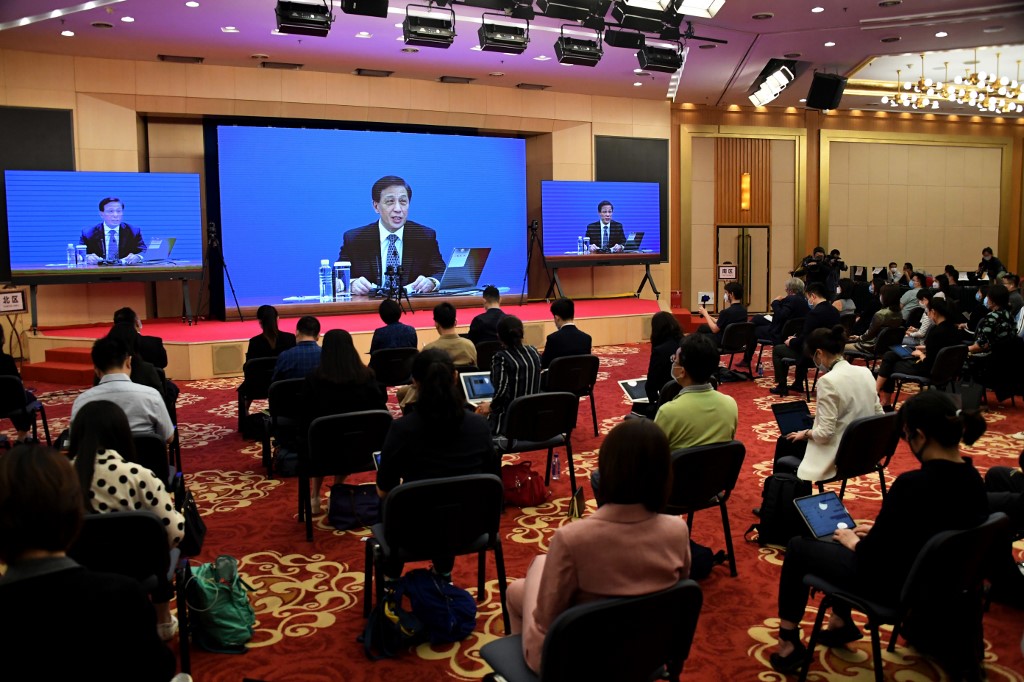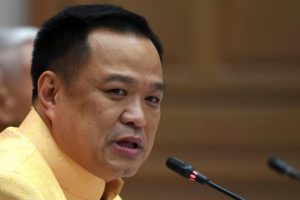A proposal to enact new security law in Hong Kong was submitted to China’s legislature, the National People’s Congress, for rubber-stamp approval on Friday, state media said. The move is expected to fan fresh protests in the semi-autonomous financial hub.
The proposal, which has been condemned by the United States and Hong Kong pro-democracy figures as an assault on the city’s freedoms, was tabled on the opening day of the week-long National People’s Congress, Xinhua news agency said.
Parliament spokesman Zhang Yesui late on Thursday said the chamber would consider a proposal for security legislation in Hong Kong. Details have yet to be spelled out.
In a state-of-the-nation speech opening China’s annual parliamentary session on Friday, Premier Li Keqiang said only that China would “establish and improve the legal systems and mechanisms to safeguard national security” in Hong Kong.
But Beijing has made clear it wants to see legislation enacted in Hong Kong to curb a growing pro-democracy movement in the former British colony, which reverted to Chinese control in 1997.
Hong Kong was rocked by seven months of massive and sometimes violent protests last year against Beijing’s growing control.
US vows strong response to ‘highly destabilising’ move
The United States on Thursday urged China to respect Hong Kong’s autonomy, warning that its proposed national security law for the city would be “highly destabilising” and face global opposition.
“Any effort to impose national security legislation that does not reflect the will of the people of Hong Kong would be highly destabilising, and would be met with strong condemnation from the United States and the international community,” State Department spokeswoman Morgan Ortagus said.
She said that China’s statements and the proposed legislation “undermine” China’s promises it made before regaining control of the financial hub from Britain in 1997.
“We urge Beijing to honour its commitments and obligations in the Sino-British Joint Declaration – including that Hong Kong will ‘enjoy a high degree of autonomy’ and that people of Hong Kong will enjoy human rights and fundamental freedoms,” Ortagus said.
Earlier on Thursday President Donald Trump also promised a response when told of the move on Hong Kong.
“I don’t know what it is, because nobody knows yet. If it happens, we’ll address that issue very strongly,” Trump said.
China said the legislation would strengthen enforcement of laws in Hong Kong that prohibit “subversion.”
But pro-democracy leaders and activists warned that the move would mark the end of Hong Kong as they know it, a fear voiced in months of massive and sometimes violent protests last year.
Preferential trading status at risk
The US Congress late last year angered China by passing a law that would strip Hong Kong’s preferential trading status in the United States if the urban hub no longer enjoys autonomy from the mainland.
Secretary of State Mike Pompeo earlier this month delayed a report on certifying Hong Kong’s autonomy under the law, saying the State Department would wait for the meeting of the legislature, the National People’s Congress.
The State Department warned on Thursday that China’s actions would affect its decision.
In a fresh bid by US Congress to exert pressure after China’s announcement, senators on Thursday introduced legislation to impose sanctions on any entity involved in curbing Hong Kong’s autonomy.
The targets could include police who crack down on demonstrators and Chinese officials involved in Hong Kong policy – as well as banks that conduct transactions with anyone who infringes on the territory’s freedoms.
“In many ways, Hong Kong is the canary in the coal mine for Asia,” said Senator Pat Toomey, a Republican who spearheaded the legislation alongside a Democrat, Chris Van Hollen.
“Beijing’s growing interference could have a chilling effect on other nations struggling for freedom in China’s shadow,” Toomey said, likely alluding to the self-governed island of Taiwan and countries that have territorial rifts with Beijing.
AFP
























